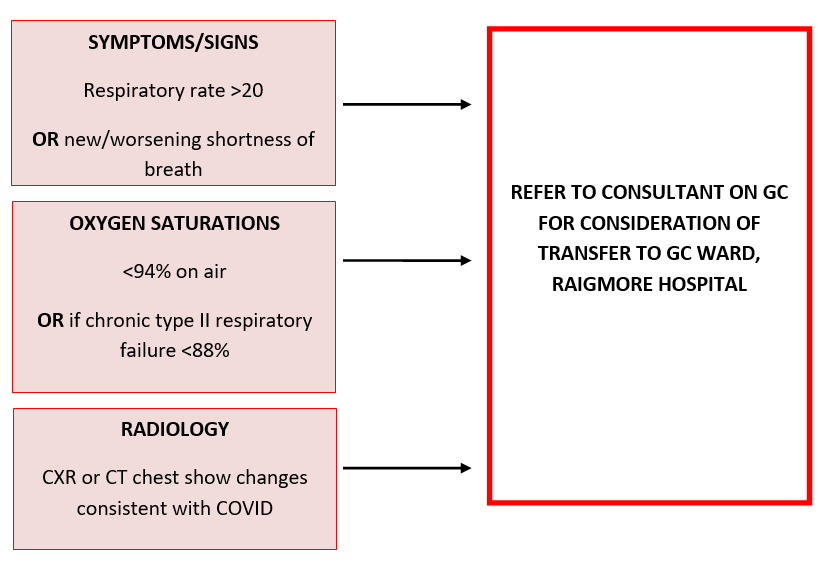- Some patients who test COVID positive on PCR or LFD do not have any COVID symptoms (ie COVID is an incidental finding) or only have mild symptoms* in which case they do not necessarily need to be transferred to ward GC in Raigmore
- These patients still need to be monitored as they can potentially deteriorate particularly within the first 2 weeks of infection
Daily monitoring:
- Clinical history and examination particularly new respiratory symptoms and signs
- Regular (4 hourly) observations
- All patients should have a treatment escalation plan documented in the notes
- If a patient is end of life then transfer to Raigmore ward GC is not appropriate even if symptomatic
The following is a guide when to refer to the Infectious diseases team for consideration of moving to Raigmore ward GC for ongoing management. If ANY of the following apply please contact Raigmore ward GC:
* Symptoms include feverish, chills, sore throat, cough, shortness of breath or difficulty breathing, nausea, vomiting, diarrhoea, headache, red or watery eyes, body aches, loss of taste or smell, fatigue, loss of appetite, confusion, dizziness, pressure or tight chest, chest pain, stomach ache, rash, sneezing, sputum or phlegm, runny nose.

